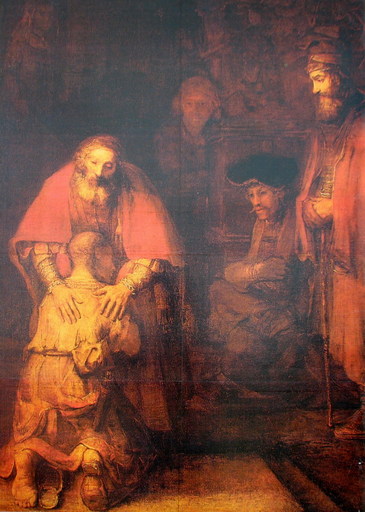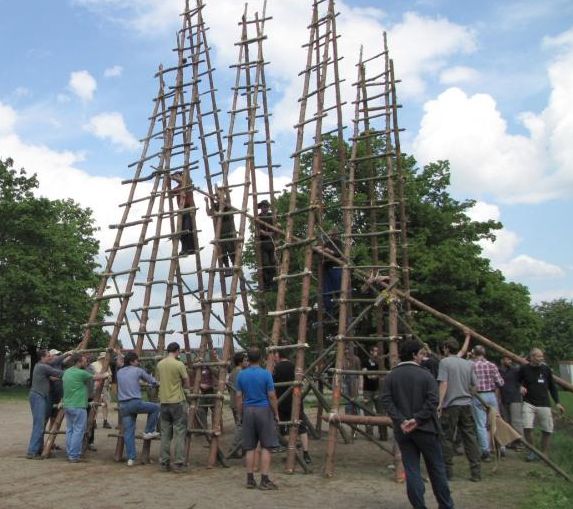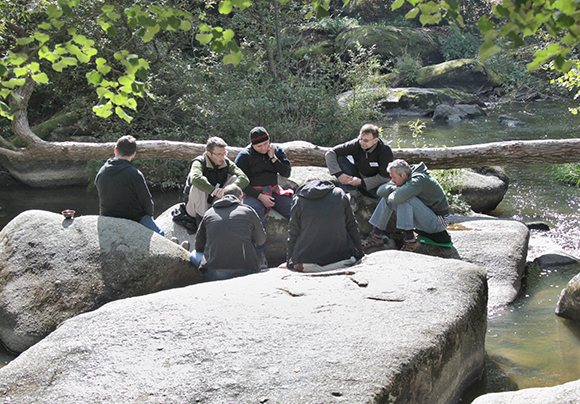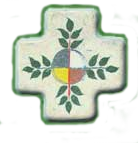
Starý muž, který se neumí smát, je trouba.
Richard Rohr
Kdo jsme?
Tento web reprezentuje hnutí Chlapi, neformální společenství mužů, kteří hledají takové způsoby duchovního prožívání, se kterými se dokážou jako muži ztotožnit a celou bytostí je žít.
Můžeš se tady setkat s muži, kteří usilují o to být lepšími a více autentickými.
Vytváříme jak reálný tak virtuální prostor pro setkávání.
Začalo to někdy před rokem 2000 hledáním mužské energie, spirituality i chlapské party a setkáváním v malých skupinách. Pokračovalo to inspirací dílem Richarda Rohra a jeho Rituálem pro přechod do zralé dospělosti a pokračuje to dodnes stovkami setkání v malých skupinách, víkendovými akcemi pro muže i pro otce a děti, rituály i celostátními setkáními pro stovky účastníků a mezinárodní spoluprací s hnutím mužů po celém světě.
Pro řadu z nás je podstatné přátelství s Bohem, pro všechny jsou oporou kamarádi, které tu nalezli.
Vítáme tě mezi námi a těšíme se na společné putování.

Pavel Hrdina a Martin Šmídek
Překlad meditace CAC z pátku 27. 10. 2023
na téma:
Matylda z Magdeburku
| Unraveled by Love Matylda z Magdeburku žila samostatně jako žebračka, dokud se o sebe nedokázala postarat. James Finley zdůrazňuje, co se můžeme od Matydy naučit, když se blížila ke své smrti: Takto pokračovala v psaní a soužití s žebračkami až do vysokého věku. Dosáhla bodu křehkosti, když oslepla a nebyla schopna se sama obléknout ani nakrmit. Přestěhovala se do kláštera cisterciáckých mnišek, které se o ni staraly. Nejenže oslepla a nejenže pro sebe nemohla nic udělat, ale Bůh jí vzal všechny stopy po pociťované Boží lásce. Na konci svého života se ocitla ve stavu bezmoci. Říká, že pokud si Bůh přeje, aby žila tímto způsobem, pak si to přeje i ona. Začíná vyjadřovat hlubokou vděčnost jeptiškám a způsobu, jakým o ni pečují, jako způsobu, jakým zakouší Boží lásku k ní v její bezmoci. Tady je Matydina modlitba vyjadřující vděčnost Bohu za její bezmocnost: Takto mluví žebračka ve své modlitbě k Bohu: Pane, děkuji ti, že když jsi mi ve své lásce odňal všechno pozemské bohatství, nyní mě oblékáš a živíš dobrotou druhých, takže už neznám věci, které by mohly mé srdce obléci do pýchy vlastnictví. Pane, děkuji Ti, že od té doby, co jsi mi vzal zrak, mi sloužíš očima druhých. Pane, děkuji Ti, že od té doby, co jsi mi vzal sílu mých rukou a sílu mého srdce, sloužíš mi nyní rukama a srdcem druhých. [1] Finley pokračuje: Její život se uzavírá do kruhu, kde místa extáze v jejím srdci a místa naprosté chudoby a zlomenosti tvoří kruh, zlomenost a extáze se vzájemně dotýkají a ona se stává naprosto obyčejnou. Stává se naprosto obyčejnou, odpadá jí schopnost získat oporu vlastní silou, aby vůbec něco dokázala. Poslední dvě knihy Plynoucího světla božství jsou nadiktované, protože už nemohla psát; nadiktovala je a zemřela, když je psala. Svou knihu končí dialogem mezi její duší a jejím tělem ve chvíli smrti: Pak už si nebudeme stěžovat. Jak se tedy můžeme naučit nechat se rozvázat láskou, jako byla Matylda? Řeknu to jinak: už to, že se nás dotýká krása těchto mystiků, znamená, že jsme touto láskou rozpleteni. Již se rozvíjí. Už se obnažuje v nevyřešených záležitostech našeho srdce. Matylda nás pak v této lásce mentoruje a je nevysvětlitelně důvěryhodná po celé naše dny. James Finley po DeepL upravil Martin | Unraveled by Love
Mechthild of Magdeburg lived independently as a beguine until she could no longer care for herself. James Finley highlights what we can learn from Mechthild as she approached her death: She continued on in this way, writing and living with the beguines, into old age. She reached a point of fragility when she became blind and wasn’t able to dress or feed herself. She moved to a monastery of Cistercian nuns who took care of her. Not only did she go blind, and not only could she not do anything for herself, but God took away all traces of the felt sense of God’s love. She comes to the end of her life in a state of powerlessness. She says that if God wishes her to live this way, then she wishes it too. She begins to express deep gratitude for the nuns and the way they care for her as a way she experiences God’s love for her in her powerlessness. Here is Mechthild’s prayer expressing her gratitude to God for her powerlessness: Thus speaks a beggar woman in her prayer to God: Lord, I thank You that since in Your love You have taken from me all earthly riches, You now clothe and feed me through the goodness of others, so that I no longer know those things that might clothe my heart in pride of possession. Lord, I thank You that since You have taken my sight from me, You serve me through the eyes of others. Lord, I thank You that since You have taken from me the strength of my hands and the strength of my heart, You now serve me with the hands and hearts of others. [1] Finley continues: Her life comes full circle, where the places of the ecstasy in her heart, and the places of utter poverty and brokenness form a circle, and the brokenness and the ecstasy touch each other and she becomes utterly ordinary. She becomes utterly ordinary, falling away from the ability to gain footing by her own power to do anything at all. The last two books of The Flowing Light of the Godhead are dictated because she couldn’t write anymore; she dictated it and she died writing it. She ends her book with a dialogue between her soul and her body in death: Then we shall no longer complain. How can we learn then to be unraveled by love, as Mechthild was? I’ll put it another way: the very fact that we are being touched by the beauty of these mystics means that we are being unraveled by this love. It’s already unfolding. It’s already being laid bare in the unresolved matters of our heart. Mechthild then mentors us in this love and is unexplainably trustworthy throughout our days. James Finley |
[1] Mechthild, The Flowing Light of the Godhead 7.64, in Meditations from Mechthild of Magdeburg, ed. Henry L. Carrigan Jr. (Brewster MA: Paraclete Press, 1999), 126.
[2] Mechthild, The Flowing Light of the Godhead 7.65, trans. Frank Tobin (New York: Paulist Press, 1998), 336.
Adapted from James Finley, “Mechtild of Magdeburg: Session 3,” in Turning to the Mystics, season 8 (Albuquerque, NM: Center for Action and Contemplation, 2023), podcast, MP3 audio.
Zde se nacházejí překlady Daily Meditations, jejichž anglické originály se nacházejí na webu CAC. V den jejich vydání je zde nalezneš přeložené strojově pomocí DeepL, zpravidla do druhého dne pak projdou jazykovou úpravou někým z týmu překladatelů :-) Pokud vládneš dobrou angličtinou, přihlas se asi raději přímo u zdroje těchto úvah, tedy na webu CAC. Budeš je pak do své mailové schránky dostávat již k ranní kávě. -mš-
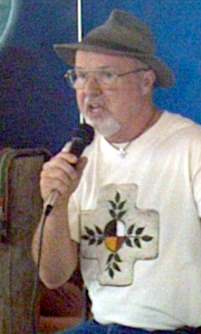 Myšlenka Richarda Rohra na středu po první neděli postní - Hřích Teologie osvobození přišla do značné míry z třetího světa. Jedním z jejich prvních poznatků je, že skutečným hříchem tohoto světa nejsou ze všeho nejdřív maličkosti, které páchají lidské bytosti. Hřích je předně celková realita, do níž jsme zajati, „institucionalizované zlo“. Papež Jan Pavel II. mluví o „strukturálním hříchu“. Dokonce ani prvotní hřích není hříchem, který …
Myšlenka Richarda Rohra na středu po první neděli postní - Hřích Teologie osvobození přišla do značné míry z třetího světa. Jedním z jejich prvních poznatků je, že skutečným hříchem tohoto světa nejsou ze všeho nejdřív maličkosti, které páchají lidské bytosti. Hřích je předně celková realita, do níž jsme zajati, „institucionalizované zlo“. Papež Jan Pavel II. mluví o „strukturálním hříchu“. Dokonce ani prvotní hřích není hříchem, který …
